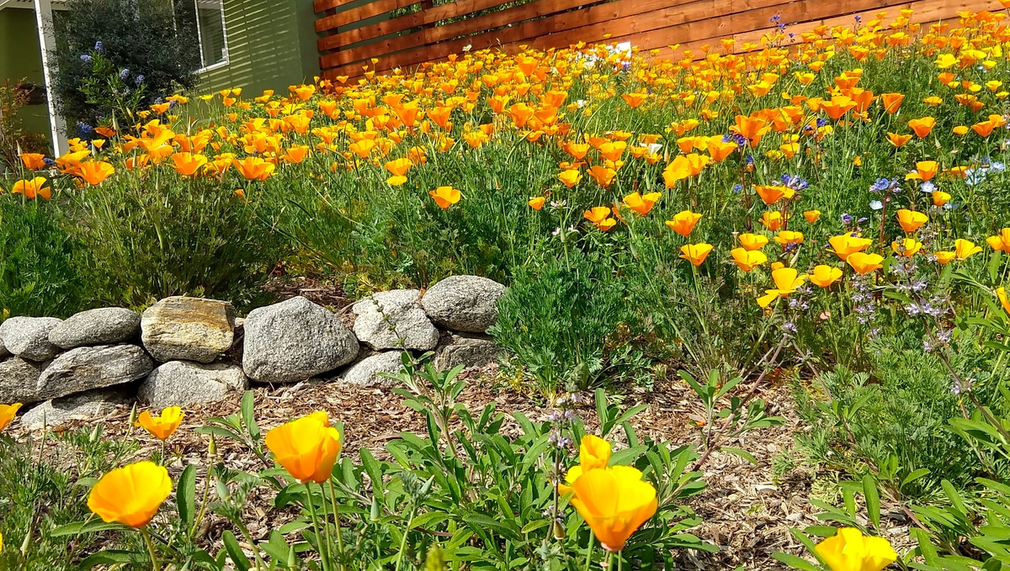Ocean Friendly Gardens for a Resilient LA
This project will use Surfrider Foundation’s Ocean Friendly Gardens program and the Dashboard.Earth app to engage residents and communities in resilience actions in the Alamitos Bay Watershed in LA County. Local tools, resources, and training to support local implementation of Ocean Friendly Gardens will be developed that will build the capacity of Surfrider, local leaders, and community volunteers to adopt and lead a watershed-based approach to sustainable landscaping.

What is the primary issue area that your application will impact?
Climate and Environment
In which areas of Los Angeles will you be directly working?
South LA
In what stage of innovation is this project, program, or initiative?
Pilot or new project, program, or initiative
What is your understanding of the issue that you are seeking to address?
The Alamitos Bay sub-watershed lies between the San Gabriel River and Los Angeles River and receives runoff and pollution flowing from inland neighborhoods. Stormwater runoff from impervious areas harms water quality in the entire watershed, as well as throughout California and nationwide. This watershed covers approximately one third of Long Beach and contains diverse neighborhoods across a socio-economic spectrum that make it an ideal location for this pilot project. While neighborhoods close to the shore are more affluent, Alamitos Bay and in particular Mother’s Beach and the adjacent parks, are used by inland residents for recreation, including a high percentage of the Latino community. By piloting this project in Alamitos Bay, Surfrider will be able to have a measurable impact on water quality and help build identity in this watershed while testing strategies for engaging members of the public in resilience actions across a spectrum of socio-economic backgrounds.
Describe the project, program, or initiative this grant will support to address the issue.
The purpose of this pilot program is to catalyze climate resilience actions in the Alamitos Bay watershed. Utilizing its proven model of staff-supported local activism, Surfrider will activate residents around specific resilience efforts, which will be recorded, tracked, and measured via the Dashboard.Earth mobile app. As a result, participating residents will see their impact through the lens of their neighborhood, and its resilience projects and goals. This pilot prioritizes and tests person-to-person engagement led by community and Surfrider leaders to increase resident engagement in actions, while centering community-specific needs and voices. It provides on-the-ground, community-centered support for residents to take action by organizing communities for a more resilient future. To build on the Surfrider Foundation's strengths in citizen engagement and activism, this pilot leverages and tests the Dashboard.Earth platform as an organizing tool and vehicle for verifying measurable, ecological outcomes, with the aim to increase resident engagement in climate actions, reduce barriers to taking action, and therefore, increase ecological and social resilience in Los Angeles. Support through the LA2050 Grants Challenge will enable us to expand and extend this pilot program to engage more residents in activities that improve water quality throughout the watershed.
Describe how Los Angeles County will be different if your work is successful.
This project will change LA County in these ways: Neighborhoods of change - groups of residents who will participate in location-centered climate resilience actions through Surfrider’s “Ocean Friendly Gardens” (OFG) program - will be created and supported. At least three small-scale residential demonstration rain gardens will be built to retain and absorb runoff to show potential participants examples of OFG principles in easy-to-access residential settings. These gardens will showcase simple resilience actions and through corresponding training and materials, will educate and support residents in new ways to make a difference in their community. By tracking actions through the Dashboard.Earth app, residents will be able to measure the positive impact they have on the environmental issues plaguing the county, just by taking small, everyday actions. This will create a sense of hope and empowerment in their individual ability to tackle the environmental challenges of our time.
What evidence do you have that this project, program, or initiative is or will be successful, and how will you define and measure success?
As a pilot project, we plan to measure its impact through these indicators: Community members informed about LA County's water & climate resilience issues, with a minimum target of 200 Residents in the target area who "onboard" into local climate resilience actions on the Dashboard.Earth app, with a minimum target of 50 The number of demonstration gardens/stormwater retention features created & maintained, with an initial target of three The number of hands-on training sessions and workshops held in the target neighborhoods at the new demonstration gardens, with a minimum target of three, with 10-20 attendees at each workshop Individual resilience actions taken by residents, as measured and tracked in the Dashboard.Earth app, with a minimum target of 100 in the first six months. We will quantify the impact of each action (for example, gallons of water saved, amount of pollutants reduced, etc.), thus measuring the cumulative environmental benefit of the project.
Approximately how many people will be impacted by this project, program, or initiative?
Direct Impact: 310
Indirect Impact: 39,000